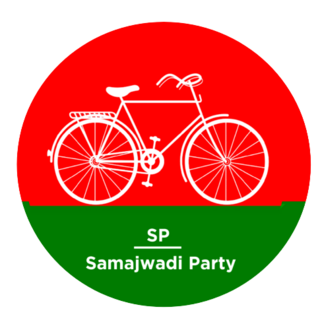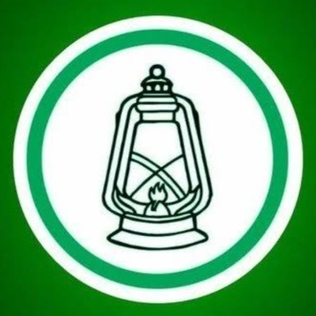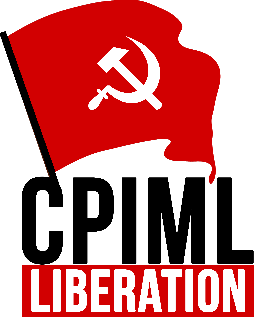Politics of India works within the framework of the country's Constitution. India is a parliamentary secular democratic republic in which the president of India is the head of state & first citizen of India and the Prime Minister of India is the head of government. It is based on the federal structure of government, although the word is not used in the Constitution itself. India follows the dual polity system, i.e. federal in nature, that consists of the central authority at the centre and states at the periphery. The Constitution defines the organizational powers and limitations of both central and state governments; it is well recognised, fluid and considered supreme, i.e. the laws of the nation must conform to it. India is officially declared a secular and socialist state as per the Constitution.

The prime minister of India is the head of government of the Republic of India. Executive authority is vested in the prime minister and his chosen Council of Ministers, despite the president of India being the nominal head of the executive. The prime minister has to be a member of one of the houses of bicameral Parliament of India, alongside heading the respective house. The prime minister and his cabinet are at all times responsible to the Lok Sabha.

The Bharatiya Janata Party is a political party in India and one of the two major Indian political parties alongside the Indian National Congress. Since 2014, it has been the ruling political party in India under the incumbent Prime Minister Narendra Modi. The BJP is aligned with right-wing politics and has close ideological and organisational links to the Rashtriya Swayamsevak Sangh (RSS), a far-right paramilitary organisation. Its policies adhere to Hindutva, a Hindu nationalist ideology. As of January 2024, it is the country's biggest political party in terms of representation in the Parliament of India as well as state legislatures.

The Indian National Congress (INC), colloquially the Congress Party or simply the Congress, is a political party in India with deep roots in most regions of India. Founded on 28 December 1885, it was the first modern nationalist movement to emerge in the British Empire in Asia and Africa. From the late 19th century, and especially after 1920, under the leadership of Mahatma Gandhi, the Congress became the principal leader of the Indian independence movement. The Congress led India to independence from the United Kingdom, and significantly influenced other anti-colonial nationalist movements in the British Empire.

Lal Krishna Advani is an Indian politician who served as the 7th Deputy Prime Minister of India from 2002 to 2004. He is one of the co-founders of Bharatiya Janata Party (BJP) and a member of the Rashtriya Swayamsevak Sangh (RSS), a right-wing Hindu nationalist volunteer organization. He is the longest serving Minister of Home Affairs serving from 1998 to 2004. He is also the longest serving Leader of the Opposition in the Lok Sabha. He was the prime ministerial candidate of the BJP during the 2009 general election.

Rahul Rajiv Gandhi is an Indian politician. A member of the Indian National Congress (INC), he is currently serving as the 12th Leader of the Opposition in Lok Sabha and as the member of the Lok Sabha for Rae Bareli, Uttar Pradesh, since June 2024. He previously represented the constituency of Wayanad, Kerala, from 2019 to 2024, and Amethi, Uttar Pradesh, from 2004 to 2019. Gandhi served as the party president of the INC from December 2017 to July 2019 and is the chairperson of the Indian Youth Congress, the National Students Union of India, and a trustee of the Rajiv Gandhi Foundation and Rajiv Gandhi Charitable Trust. He is a member of the Nehru–Gandhi political family.

The Communist Party of India (Marxist) (abbreviated as CPI(M)) is a communist political party in India. It is the largest communist party in India in terms of membership and electoral seats, and one of the national parties of India. The party was founded through a splitting from the Communist Party of India in 1964 and it quickly became the dominant faction.

The Communist Party of India (CPI) is the oldest communist party in India. The CPI was founded in modern-day Kanpur on 26 December 1925.

The Samajwadi Party is a socialist political party in India. It was founded on 4 October 1992 by former Janata Dal politician Mulayam Singh Yadav and is headquartered in New Delhi. The Samajwadi Party is currently led by former Chief Minister of Uttar Pradesh, Akhilesh Yadav. As of 2024, it is currently the third-largest political party in India, and the largest party in Uttar Pradesh.

The Telugu Desam Party is an Indian Telugu regional political party with influence in the states of Andhra Pradesh and Telangana. It was founded by the former chief minister of Andhra Pradesh N. T. Rama Rao (N.T.R.) on 29 March 1982 and has focused on supporting Telugu speakers. The party has won a five-time majority in the Andhra Pradesh Legislative Assembly and has emerged as the most successful political outfit in the state's history. It is currently the ruling party in the Andhra Pradesh Legislative Assembly.

The Rashtriya Janata Dal is an Indian political party, based in the states of Bihar, Jharkhand and Kerala. The party was founded in 1997 by Lalu Prasad Yadav.

Janata Dal was an Indian political party which was formed through the merger of Janata Party factions, the Lok Dal, Indian National Congress (Jagjivan), and the Jan Morcha united on 11 October 1988 on the birth anniversary of Jayaprakash Narayan under the leadership of V. P. Singh.

The Communist Party of India (Marxist–Leninist) Liberation is a communist political party in India. The party is represented in Bihar and Jharkhand Legislative Assemblies. Since 2023, the party is also a member of the INDIA electoral alliance. In Bihar, party has significant base amongst the Extremely Backward Castes and the Schedule Castes. It was successful in mobilising Upper Backward Caste group such as Koeris in some districts of central Bihar, prior to the rise of Lalu Prasad Yadav. The party faced existential crisis when a large section of its Koeri and Yadav support base was defected to Rashtriya Janata Dal in 1990s. However, the ideological commitment of its cadre protected it from disintegration. It staged a comeback in politics after winning twelve seats in Bihar Legislative Assembly in 2020 and by sending two of its members to Lok Sabha in 2024 Indian general elections.
The State Legislative Assembly, or Vidhan Sabha, also called Vidhana Sabha, or Saasana Sabha, is a legislative body in each of the states and certain union territories of India. In 28 states and 8 union territories, there is a unicameral legislature which is the sole legislative body. In 6 states, the legislative assembly is the lower house of their bicameral legislature with the upper house being the State Legislative Council. 5 union territories are governed directly by the Union Government of India and have no legislative body.

The Punjab Legislative Assembly or the Punjab Vidhan Sabha is the unicameral legislature of the state of Punjab in India. The Sixteenth Punjab Legislative Assembly was constituted in March 2022. At present, it consists of 117 members, directly elected from 117 single-seat constituencies. The tenure of the Legislative Assembly is five years unless dissolved sooner. The Speaker of the sixteenth assembly is Kultar Singh Sandhwan. The meeting place of the Legislative Assembly since 6 March 1961 is the Vidhan Bhavan in Chandigarh.

The Yuvajana Sramika Rythu Congress Party, often shortened to simply the YSR Congress Party, is an Indian regional political party based in the state of Andhra Pradesh. Its president, Y. S. Jagan Mohan Reddy, has previously served as the state's chief minister. It currently has 4 seats in the Lok Sabha.

Khadga Prasad Sharma Oli ; commonly known as KP Sharma Oli; is a Nepalese politician serving as the Prime Minister of Nepal since 15 July 2024 and chairman of the Communist Party of Nepal since 2014. He previously served as prime minister from 11 October 2015 to 3 August 2016, from 15 February 2018 to 14 May 2021 and from 14 May 2021 to 13 July 2021, He has been the Member of Parliament for Jhapa 5 since 2017, he previously served as an MP for Jhapa 6, Jhapa 2 and Jhapa 7.

The Aam Aadmi Party is a political party in India. It was founded on 26 November 2012 by Arvind Kejriwal and his then-companions, following the 2011 Indian anti-corruption movement against then Indian government of Indian National Congress. AAP is currently the governing party in the Indian state of Punjab and the union territory of Delhi. On 10 April 2023, AAP was officially granted the status of National party by ECI. The party's election symbol is a broom. The party is currently part of the coalition I.N.D.I.A. Alliance.